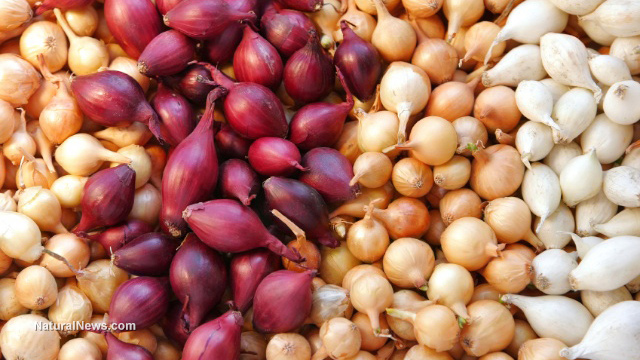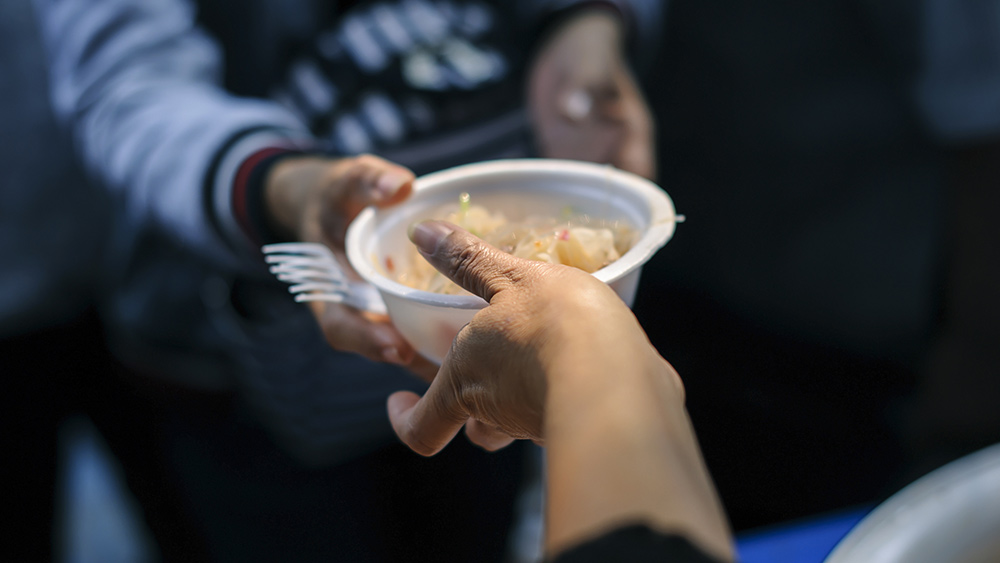India bans onion exports as government tries to control rising food prices
12/12/2023 / By Cassie B.

India has added yet another food staple to its list of export restrictions as the country’s government takes drastic steps to keep domestic prices under control as elections in the country loom.
The latest move sees overseas shipments of onions prohibited until the end of March, with an exception being made for cargos that began loading before the notification was issued. The move comes after the Indian government took steps to release stockpiles of onions to protect consumers from rising costs late this summer.
India also recently placed restrictions on using sugar cane juice for the production of biofuels in an attempt to increase its reserves. They have also placed export restrictions on rice and wheat.
Some of these measures are already affecting global markets, raising prices and threatening the food supplies in African and Asian countries. Markets in Sri Lanka, the Maldives, Bhutan, Bangladesh and Nepal have already reported steep price increases on onions as a result of the ban.
Food inflation has been skyrocketing in India, with the average price for onions nearly doubling in just a year’s time from 28.9 to 57.1 rupees per kilogram. The prices of other staples, such as rice, sugar and tomatoes, have also risen.
Barclays Plc economist Rahul Bajoria told Bloomberg: “A build up in food inflation has prompted the government to take several actions to shore up domestic food supply, both through the use of export bans and higher imports.”
Bajoria expects this situation to continue until the country’s national elections are held in the middle of next year.
Consumer Affairs Secretary Rohit Kumar Singh said in a briefing to the media: “There won’t be any impact of export ban on farmers as the government procurement is going on. So far this year, we have procured 5.10 lakh tonnes of onion and about 2 lakh tonnes kharif crop will be procured.”
He said that the buffer stock will protect consumers. “By maintaining the onion buffer stock, the government sends a signal that it can offload anytime in the market if traders indulge in hoarding and jack up prices,” he added.
According to Singh, onion prices were in control until June thanks to good crop outputs, but the situation took a turn starting in July, when harvests are lean and people turn to stored onions. Prices started to rise over concerns about the quality of onions as well as late sowing. This prompted the government to set a Minimum Export Price on onions to restrict outbound shipments.
When that move failed to produce the desired results, exports were fully banned in a bid to protect domestic interests. The ban will be reviewed when domestic availability stabilizes.
India has also banned exports of wheat and rice
In May 2022, India, which is the second-biggest wheat producer in the world, banned exports of wheat in an attempt to control increasing domestic prices. Singh ruled out lifting the ban in May, saying there was “no chance at all” wheat exports would be permitted.
A notice from India’s Directorate General of Foreign Trade said that countries that request exemptions for food security reasons may still be allowed to receive onion exports; the country has also implemented a provision of this type for rice.
When India announced it was going to stop exporting non-basmati white rice this summer to secure domestic availability and reduce prices, it sent the Asian market into a panic as India accounts for 40 percent of global rice trade.
Sources for this article include:
Submit a correction >>
Tagged Under:
banned, big government, conspiracy, economic riot, elections, food collapse, food prices, food supply, grocery, hunger, India, inflation, onions, products, rationing, rice, scarcity, starvation, supply chain, wheat
This article may contain statements that reflect the opinion of the author
RECENT NEWS & ARTICLES
FoodScarcity.News is a fact-based public education website published by CORONA2019 News Features, LLC.
All content copyright © 2022 by Food Scarcity News Features, LLC.
Contact Us with Tips or Corrections
All trademarks, registered trademarks and servicemarks mentioned on this site are the property of their respective owners.




















